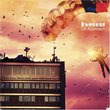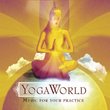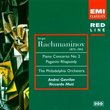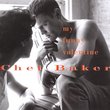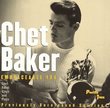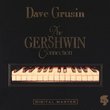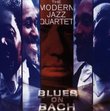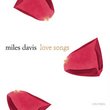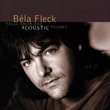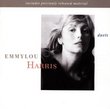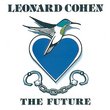| All Artists: Dave Brubeck Title: Jazz at the College of the Pacific 1 Members Wishing: 2 Total Copies: 0 Label: Ojc Release Date: 7/1/1991 Album Type: Live Genres: Jazz, Pop Style: Cool Jazz Number of Discs: 1 SwapaCD Credits: 1 UPCs: 025218488020, 025218604727, 0090204021598, 0090204975648, 025218004718, 025218004749, 025218604710, 090204021598, 090204027088, 090204975648, 025218604727 |
Search - Dave Brubeck :: Jazz at the College of the Pacific 1
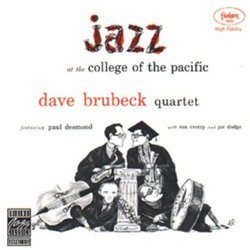 | Dave Brubeck Jazz at the College of the Pacific 1 Genres: Jazz, Pop
|
Larger Image |
CD DetailsSimilar CDs
Similarly Requested CDs
|
CD ReviewsClassic Early Brubeck MikeG | England | 06/19/2004 (5 out of 5 stars) "Even before its musical experiments with `time' the Brubeck Quartet was already one of the most popular groups in jazz and as an improvising jazz group it was arguably more interesting and more innovative in the early 1950s. It drew a new young audience to jazz by playing concerts at university campuses, and three albums in particular (`Jazz at Pacific College'; `Jazz at Oberlin' and `Jazz Goes to College') show how inspired the quartet's playing in that kind of live setting could be. The Pacific College album demonstrates Brubeck's individual approach to piano improvisation and his close musical rapport with altoist Paul Desmond. Mainly bypassing the influence of Bud Powell and other `Be-Bop' piano stylists, he combined influences of pre-modern jazz pianists with elements from classical composers. The result was a style which was `mainstream' in some aspects and original in others, a style with a wider emotional range than most jazz pianists encompassed and which lent itself to dramatic effects which made it particularly compelling in live concerts. "All the Things You Are" is a classic example. Desmond opens with an excellent, melodically inventive solo, towards the end of which he hits upon a `baroque' theme. Brubeck in his solo picks up that theme and develops from it a J.S. Bach-style fugal idea which he sustains and builds to a powerful climax. It would have been an interesting treatment of Jerome Kern's theme if it had been worked out in advance but is even more striking for having been improvised on the spot. Although his music has sometimes been scorned as not being `real' jazz, the importance of improvisation has long been an article of faith with Brubeck, and "All the Things You Are" is a good example of the spontaneity and adventurousness of his playing at its best. It also reveals a key quality in both soloists: a gift for sustained melodic invention. This ability to improvise genuinely tuneful lines was a strength of the quartet's music which Desmond never lost sight of, even if Brubeck in his work in the 1960s occasionally did. It is well in evidence in the ballad, "For All We Know". Here they improvise a sequence of melodic ideas no less memorable than the original tune. Brubeck's solo is more overtly passionate than Desmond's, apparently influenced by the musical language of Romantic pianist-composers such as Chopin and perhaps Rachmaninov. But it's also interesting how Brubeck's melodic lines seem to grow out of and build upon Desmond's so that the whole piece, if it were to be orchestrated, would sound like the invention of one composing mind. Desmond plays with a touching lyrical grace and sense of stillness, his tone remarkably light, sweet and pure but with subtle emotional inflection. It compares interestingly with his superb solo on the 1960s Carnegie Hall concert version of this tune. The other slow ballad on this CD, "Laura", introduces a further ingredient into the mixture, in that Brubeck adds to the `Romantic' influences some echoes of the `impressionism' of Debussy (for example of "Reflets d'ans l'Eau" - from his piano suite `Images'). One can understand why purist jazz critics might object that this isn't `real' jazz; but in its own terms it's an imaginative piece of music-making, and its attention to beauty of sound and delicate tone-colouring contrasts interestingly with Brubeck's more extrovert, excitable manner. It also shows skill and subtlety in the way it combines within one piece the different approaches to rhythm of `classical' music and jazz. Those three pieces are my favourites. There are good things on the other tracks, in Brubeck's more `ruminative' style. You could object that he doesn't string his ideas together and `follow through' as effectively as on the three tracks described; but I like the spontaneous and unpredictable way that he moves between different approaches to the tune during the course of a solo. He does some original things with harmony, makes imaginative use of variations of tone and dynamics and even at this early stage shows his fascination with the effects of playing a different time signature (2/4 or 3/4) against the basic 4/4 pulse. Paul Desmond is in consistently good form, seemingly in touch with a stream of fresh invention throughout the session, and that's also true of the companion album `Jazz at Pacific College, Volume 2' (further performances from the same concert) which I also recommend. One aspect of the quartet's music which you might find less than endearing is Desmond's, and to a lesser extent Brubeck's, crowd-pleasing device of occasionally inserting quotations from other tunes into their solos. However, it has never particularly bothered me, maybe partly because of the skill with which the quotations are stitched into the fabric of the solo: for example, on "I Remember You" Desmond quotes the main motif from the tune "Undecided" but devotes about half a chorus to exploring some ingenious variations on it.I can't guarantee that anyone who comes from an interest in the quartet's "greatest hits" ("Take Five", "Unsquare Dance", etc.) will find this music, as I do, superior to `Time Out' and its sequels (Being an early `fifties live concert album in mono, it certainly doesn't have their quality of recorded sound). But there is a lot of interesting, enjoyable music preserved here of a kind which you won't find anywhere else and which for me has not dated since I first heard it nearly 40 years ago. If you do like it you should also like the even more exciting `Jazz at Oberlin'. I would also recommend the less exciting but no less inventive Storyville Club sessions, particularly the performances of "Over the Rainbow", "You Go To My Head" and "Give a Little Whistle/Lady be Good" (available on a CD titled `Dave Brubeck and Paul Desmond' on the Fantasy label). All of the albums I've recommended in this review have an atmosphere of freshness and new discovery which is capable of communicating as eloquently now as it did to its original audiences." Sublime MikeG | 11/02/1998 (5 out of 5 stars) "Brubeck and Desmond work their special magic here and produce their finest live recording. This is sophisticated improv to tame the beast. I have listened to these tracks uncountable times and I never get tired of them. This is truely a wistful soundtrack to transport one to a higher realm. Try this the next time you are caught in heavy traffic on a rainy afternoon. You won't mind the delay. It never fails." Greatest Jazz... Walter P. Gainey | Tarpon Springs, FL | 11/03/2008 (5 out of 5 stars) "I first received this album [an lp] as a Christmas gift from my parents when I was 16. Fort-seven years later I still consider it to be one of the greatet jazz recordings of all time.The music is just incredible. Not to overlook, Joe Dodge's drumming...sensational. This is a must for anyone who loves music."
|

 Track Listings (6) - Disc #1
Track Listings (6) - Disc #1
